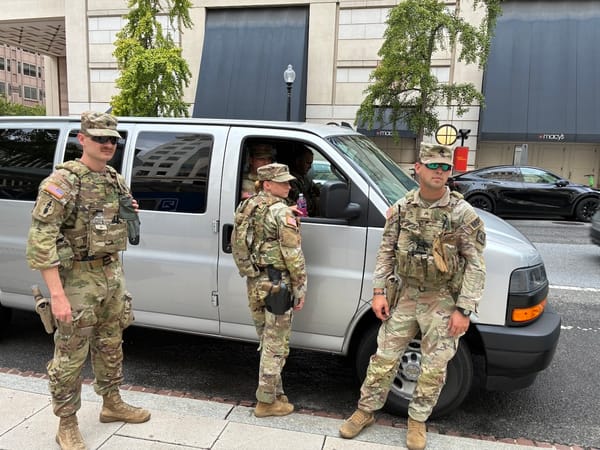PATRIOT Act Oversight and Other Surveillance Oxymorons
On May 21, 2015, the Department of Justice Inspector General publicly released a long-overdue report on the FBI’s compliance with PATRIOT…
On May 21, 2015, the Department of Justice Inspector General publicly released a long-overdue report on the FBI’s compliance with PATRIOT Act Sec. 215's provisions. The report and it’s executive summary were released the day after Senator Rand Paul’s filibuster against the efforts of some in the Senate to extend Sec. 215 surveillance programs for another five years. There are several remarkable things about this report and the debate surrounding the mass surveillance programs associated with it, but two in particular are of note.
The first is that like the findings in the report on the previously-illegal STELLAR WIND mass surveillance program, this DoJ IG report found that users of the Sec. 215 mass surveillance program
…did not identify any major case developments that resulted from the records obtained in response to Section 215 orders surveillance program.
Translation: no plots to attack American uncovered by Sec. 215 mass surveillance — the same dismal result achieved by mass surveillance carried out under the STELLAR WIND program.
And how much of the tens of millions of electronic communications swept up in this Sec. 215 dragnet were being analyzed by NSA?
According to the application, the NSA estimated that only a tiny fraction
(0.000025 percent or one in four million) of the call detail records included in the archive were expected to be analyzed. The results of any such analysis
would be provided, or “tipped,” to the FBI or other federal agencies. The
application stated that the NSA expected to provide on average approximately two telephone numbers per day to the federal agencies. (emphasis added)
The fact that the report also found that the FBI, for seven consecutive years, violated the PATRIOT Act’s privacy safeguard requirements added an element of criminal abuse to a program that was clearly a waste of taxpayer dollars.
In January 2009, the FISA court was sufficiently concerned about the ongoing statutory violations by the FBI that it asked the executive branch to file a brief to
“…help the Court assess whether the Orders in this docket should be modified or rescinded; whether other remedial steps should be directed; and whether the Court should take action regarding persons responsible for any misrepresentations to the Court or violation of its Orders, either through its contempt powers or by referral to appropriate investigative offices.” (emphasis added)
The FISA court threatened to go after offending FBI agents and other executive branch officials, but it never did. And the DoJ IG apparently took no action to recommend disciplinary action against FBI officials who, year after year, violated the law.
The second noteworthy thing about this Sec. 215 program and the debate surrounding it is that Department of Justice officials and members of Congress continue to repeat the falsehood that the program works, is legal, and is vital to national security:
“I think that we run the risk … of essentially being less safe. I think that we lose important tools. I think that we lose the ability to intercept these communications, which have proven very important in cases that we have built in the past. I am very concerned that the American people will be unprotected if this law expires. I’m hopeful, however, that Congress, who I know is working on this issue, will come to a resolution.” — Attorney General Loretta Lynch
“There is not a single documented case of abuse of this program” — Senator Marco Rubio (R-FL)
“We’ve got a program that has never had one breach of personal privacy, and there’s really no compelling reason to change the structure of the program other than that the public is uncomfortable with it.” — Senate Intelligence Committee Chairman Richard Burr (R-NC)
As the Second Circuit Court of Appeals ruled earlier this month, the very collection of the information — on all Americans — is illegal and that the PATRIOT Act as written does not authorize such a program. And when the nation’s chief law enforcement officer and key Congressional leaders elect to ignore these facts while debating the fate of a law that should never have existed in the first place, you know that oversight of our nation’s intelligence programs is a policy train wreck.





